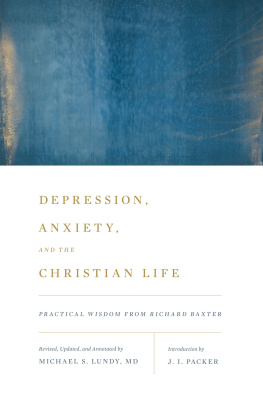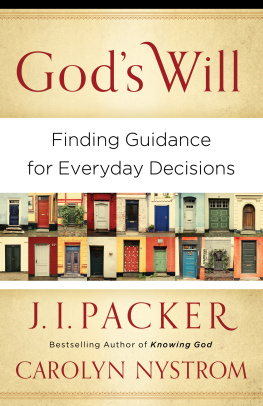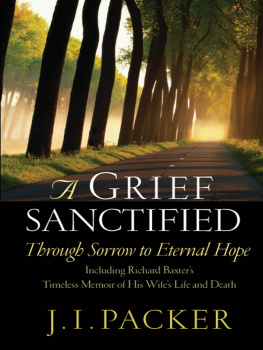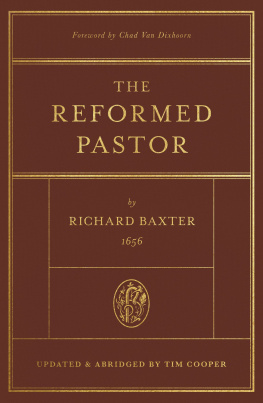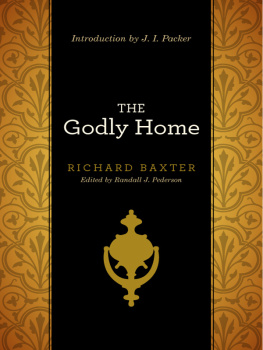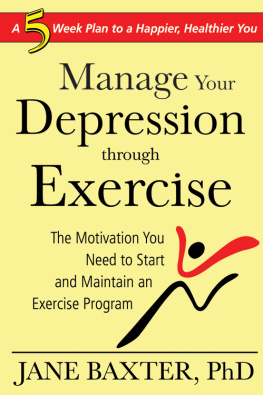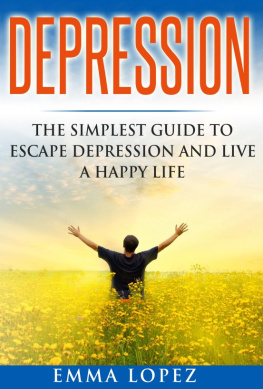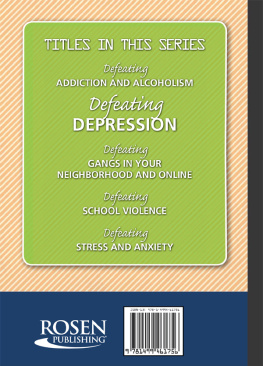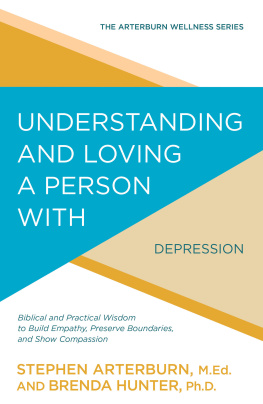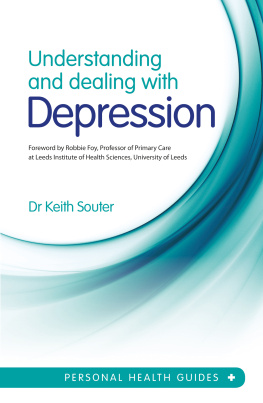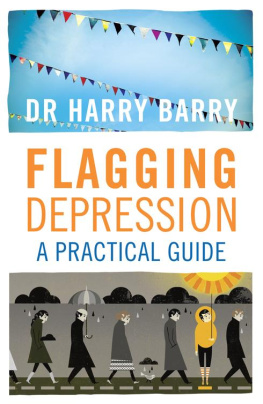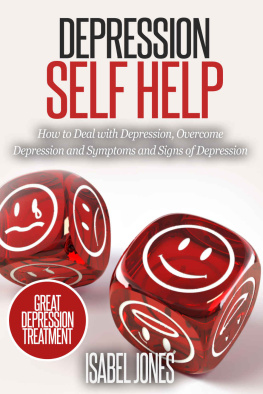Table of Contents
Landmarks
Depression, Anxiety, and the Christian Life
Practical Wisdom from Richard Baxter
Revised, Updated, and Annotated by Michael S. Lundy, MD
Introduction by J. I. Packer
Chapter 4
Richard Baxter
Question: What are the best protections against depression and overwhelming sorrow?
... or he may be overwhelmed by excessive sorrow. (2 Cor. 2:7)
Since the brevity of my presentation does not give me the liberty, I cannot spend time developing the context of this verse or speculate on whether the person of whom it speaks is the same individual indicted and judged for incest in 1 Corinthians 5 or is someone else. Similarly, I decline to take up the argument by one expositor who believes that the condemned man was actually a bishop of the church in Achaia, and that a formal gathering of his fellow bishops was responsible for his excommunication. Further, the additional speculation regarding opinions as to the proportional representation of each congregation by a specific bishop is irrelevant here. So also are the discussions regarding the question of schism if the individual cited were a bishop and, upon his excommunication (demanded by Paul), managed to retain a following that rejected the excommunication, and so on. The only portion of this verse that is relevant to my present concern is the last sentence, which provides the reason that the censured offender, who has expressed sincere repentance, should be forgiven and restored: or he may be overwhelmed by excessive sorrow.
This last sentence expresses three practical matters of doctrine, each intimately related to the other two, which I will address as a whole. Specifically, these are the points:
1. Sorrow and grief, even for actual and heinous sin, may be excessive.
2. Excessive sorrow will devour a person.
3. Accordingly, such sorrow must be resisted and assuaged by appropriate comfort from others, but which should also come from within our own souls.
These concerns will be addressed in this manner and in the following order:
1. What actually represents excessive sorrow
2. The means by which this sort of sorrow devours and destroys one
3. The causes of such sorrow
4. The effective resolution of such sorrow
It should go without saying that excessive sorrow for real sin is hardly a common state of affairs in this world. Rather, a willfully ignorant and stubborn disposition is the common cause of peoples perdition. The ubiquity of a hard heart and an insensitive conscience protects most people from a proper sense of the gravity of their sin, or at least from an awareness of the danger, misery, and eternal ramifications for their guilty souls. A languorous familiarity with sin deprives most individuals of awareness or comprehension. They may perform some of the external acts of religion, but as if in a dream: they attend church; they repeat the words of the creed, the Lords Prayer, and the liturgical recitation of the Ten Commandments; and they even receive Communion, but as if asleep to the implications of them all. While they agree that sin is the most hateful thing in Gods sight and hurtful to their fellow men (and women), they nevertheless live in sin with delight and obstinacy. They imagine themselves to repent of it, but when they are not persuaded to actually forsake it, they instead direct their own hatred to those who would encourage them to make a clean break from sin.
Such individuals will not see themselves to be either as spiritually awake to these matters? They think of, listen to, and even discuss the great work of mans redemption by Christ, and of the need of justifying and sanctifying grace, and of the joys and miseries of the life to come in a manner that is thoroughly flippant and disengaged. Yet they state that they believe these things! When we preach or speak with them of the most important thingsthe eternal veritiesciting the best evidence and in the plainest and most earnest words, it is as if speaking to the dead or to those sound asleep. While they have ears, they dont actually hear, and nothing affects their hearts.
It may be supposed that those who read the Bible and profess a belief in both its promise of eternal glory and its threat of eternal and dreadful punishment would be acutely aware of certain matters. Namely, one expects them to see the need for grace or punishment.
It is exactly because a hard heart constitutes so much of the error and misery of the unconverted, and because a soft and tender heart is so integral to the new nature as promised by Christ, that some who are newly converted imagine that they can never overdo their newfound sorrow for sin. Rather, they so fear being hard - hearted that they end up being nearly swallowed alive by an excessive, exaggerated sorrow. Even though this excessive sorrow may be for real sins, past or present, it is a dangerous virtue, as it were, and as such, none at all. To wear such excessive sorrow as a badge of honor or as an evidence of duty, or to fail to understand the danger in such a misguided attitude, leads to further mistakes. Some have imagined that only those Christians who are most doubtful, fearful, and sorrowfuland most likely to be morose and constant complainersare truly sincere in faith. This represents a serious error.
When Is Sorrow Excessive?
1. Sorrow is excessive when it arises from false premises. Any sorrow is excessive if none at all is appropriate, and a great sorrow is excessive if it is disproportionate to the actual cause. If one believes it to be a matter of duty to accomplish what is no duty at all, but feels guilty for having left the matter undone, this is guilt caused by error. Many have felt very guilty because they found themselves unable to pray with sufficient fervor or for what they deemed a sufficient duration, for which they possessed neither the ability nor the time. Others have felt guilty for not pointing out sin in another, when the actual need was for wise instruction and carefully worded intimation rather than formal rebuke. More become obsessed with a sense of sin when, during their workday, they think of unspiritual things necessary to their business rather than about God.
These guilty sensations follow from superstition, when individuals have placed upon themselves religious duties that God never required of them, and they have fallen short in performing these self - imposed obligations. Others have, falsely, become convinced that what they once held as true doctrine might be false, and then are confused and imagine that they are obligated to renounce as false what they have long held to be true. Some become preoccupied with every bit of food they eat, what they wear, and what they say. Accordingly, they develop an inverted sense of good and evil, think the good they do is sinful, and exaggerate unavoidable minor imperfections as heinous crimes. These represent examples of pain and guilt that have no valid cause and are therefore exaggerated.
2. Guilt is excessive when it is self - destructive in either a physical or an intellectual sense. Nature requires being taken seriously, and its enjoyment requires a proper exercise of duties attached to healthy living. But clearly, such gravity and associated duties must not alone or together be understood or implemented in a way that is harmful to ones own well -being. Just as civil, church, and family laws are intended in each realm for building up and not for their destruction, so also personal discipline is for ones good, not harm. As God has stated his preference for mercy over sacrifice, it is clear that we are not to use religion as a pretense to do harm to ourselves or our neighbors. We are told to love our neighbors as we do ourselves. Fasting, for example, may be considered a duty only so far as it advances a specified good (such as expressing humility or gaining control of a particular temptation). Likewise, sorrow is excessive when it does more harm than good. But more on this specific matter later.

